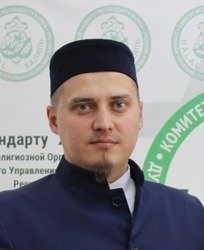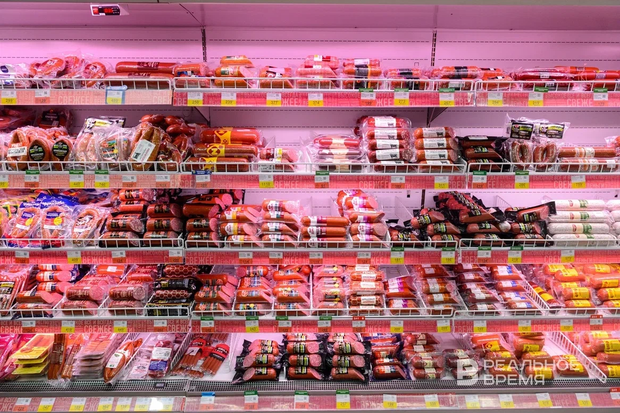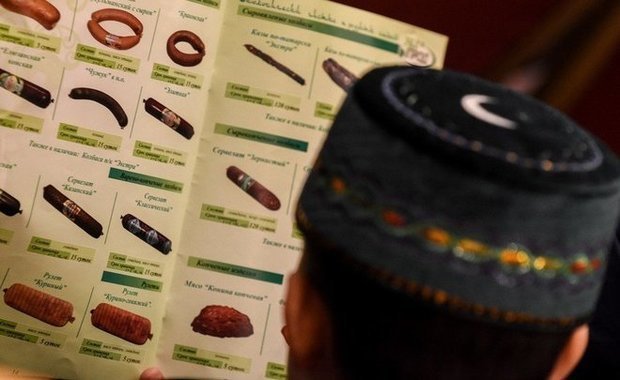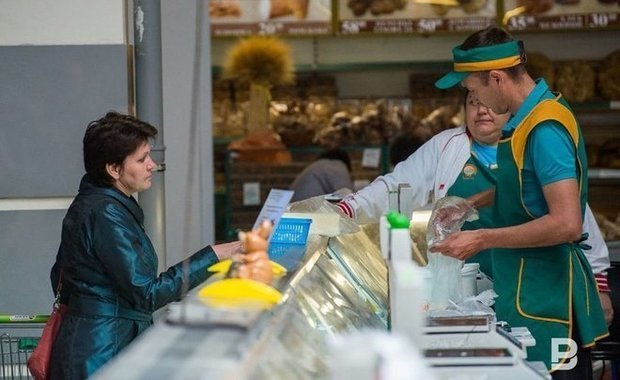Halal laboratory to be opened in Tatarstan
Muslim Spiritual Board of the republic is working on the creation of GOST standards for the production of products according to Sharia law

Scandalous cases of pig DNA detection in halal products of Russian food industry enterprises prompted the Halal Standard Committee under the Muslim Spiritual Board of Tatarstan to conduct its own investigation of the incidents. The MSB RT believes that in these situations, contamination may have taken place, that is, mixing of molecules during tests that require special conditions — separate knives, cutting boards, and equipment that did not come into contact with the haram. Besides, a working group is being created at the department to work out a new GOST for checking halal products. Read the details in the material of Realnoe Vremya.
Different laboratories gave different results
The reveal of pig DNA in sausage labelled 'Halal' by three manufacturers who sold their products in Bashkiria was reported in early October. The information was distributed by the Office of Rospotrebnadzor in the Republic of Bashkortostan. As stated in the message, laboratory tests revealed traces of pork in the products of Dary Urala Agricultural Processing Consumer Cooperative, Chelny-myaso LLC, TsaritsynoJSC .
“Meanwhile, only horsemeat, beef, and poultry were indicated on the sausage labels in the composition. Laboratory studies were conducted by the Centre for Hygiene and Epidemiology. The revealed violations are regarded as “falsification of finished meat products”. Rospotrebnadzor sent warnings to manufacturers about the inadmissibility of violating mandatory requirements of Russian legislation," the department said.

However, the Committee on the Halal Standard of the MSB of the Republic of Tatarstan reported that they have the opposite results of the study. By the way, it was this certifying body that issued the corresponding document on compliance with the Halal standard to the Chelny-myaso enterprise.
“The committee sends quarterly samples of halal products of controlled enterprises for laboratory tests to the accredited laboratory of the Tatarstan branch of the VNIIZH Federal State Budgetary Institution under the Rosselkhoznadzor, with which cooperation has been conducted for 10 years. The last laboratory tests were conducted on October 9, 2023. According to the test reports, no fragments of pig DNA were found in the samples of halal products of Chelny-myaso PLC. Test reports are attached. The samples were purchased in a retail network," the MSB Committee reported.
“There is no single GOST”
Realnoe Vremya asked for comments on the situation to the Department of Rospotrebnadzor for the Republic of Belarus and the Duma of the Republic of Tatarstan. The Bashkortostan department has not yet responded to the publication's request, and the Tatarstan one explained the situation as follows:

According to the chairman of the committee, there is currently no single GOST for testing halal products and detecting pig DNA: “This can be done by qualitative and quantitative methods. The qualitative method consists in that even if a single molecule is revealed, the pig's DNA will be detected. But if you check the product by the quantitative method, it will not be. How can pig DNA appear in halal products? For example, there are many different workshops in production, and a molecule can even pass through ventilation, or a molecule can be transferred by employees, personnel who move from shop to shop in the same clothes.”
“Today we have been trained according to the standards of the Persian Gulf. They are very sensitive about this. Here they adhere to the rules that when moving from one room to another, you need to change dressing gowns and gloves, wash shoes, because DNA can move. Now in our country, all laboratories study DNA in a qualitative equivalent, no one checks it with a quantitative method, because it requires too many resources — both financial and temporary. In the first case, the results of the check can be found out after 7 days, in the second — you have to wait about 2 weeks," said Abbyas Shlyaposhnikov.

“Cross-contamination can happen anywhere”
The second important question, according to khazrat, is how samples of halal products are taken: “For example, there is a poultry farm, next to it a factory for the production of semi-finished products. This is where the product comes out, for example, sausage. It leaves the production and the company is not responsible for it further. Because the product is loaded into the trading house's own car, it is taken first to warehouses, and then transported to retail outlets. We do not have separate certified warehouses for halal products. Most often, those who sell halal products in warehouses simply separate it with some kind of wall. Besides, the same staff works with halal and non-halal products, the same trolleys, scales and so on are used.”
Contamination, that is, mixing, cross-contamination, can be everywhere from the moment of leaving production, and packaging here may not save the situation.
Now the Halal Standard Committee is asking manufacturers to strengthen packaging. For example, sausage, which is in a vacuum film, should be packed on top of it again under vacuum.
“We need to understand where the contamination could have occurred. It could have happened in the laboratory itself. For example, an expert on the same table checks pork, and then a halal product. Purification according to the sanitary regulations and standards is carried out, but not according to Sharia. If we are talking about halal products, then we must not forget about religiosity, according to special rules, the cleaning of the inventory and the place of sampling itself should be carried out," the head of the committee stressed.

“We are ready to send samples to Indonesia — the question of reputation is more expensive for them”
The committee believes that in Russia it is necessary to create a laboratory by Halal standards.
“There is no such laboratory in Russia. It got to the point that our colleagues took sausages and sent them to Indonesia — to laboratories accredited according to Halal standards. We still do not fully understand the importance of this, do not understand the requirements that halal provides. Now laboratories allow the possibility that pig DNA can get into a halal product. It is clear that there is a certain GOST for sampling, but it is not fully suitable for halal products," explained Abbyas khazrat.
The Muslim Spiritual Board of the Republic of Tatarstan is already discussing the creation of the first halal laboratory. It is planned to create it according to all religious rules to avoid the risks that led to recent cases. Experts say that the selection should be carried out not in retail outlets, not in supermarkets, but in the production itself:
“The representatives of Chelny-myaso and other industries that have been criticised are now telling the supervisory authorities: come and take samples from us directly at the factory. Moreover, they are now ready to take another step — to send samples to Indonesia to an accredited laboratory, despite that it costs a lot of money. But the question of reputation is more expensive for them than money.”
The supervisory authorities are offered to conduct an experiment: go to the enterprise, take samples directly at the production site, then take samples at the point of sale and take them to accredited laboratories in different regions. Manufacturers are ready for this. They want to get to the truth, the committee says.

“There is a GOST for halal sampling, but there is no GOST for Halal test”
“Now the Committee is conducting a whole investigation in which part cross-contamination may occur. Having identified this, it will be necessary to enter this checkpoint in the GOST on halal products verification. We are initiating the creation of a working group, which will include representatives of the business community, clergy, and state oversight bodies. Our goal is to create a GOST, which will define standards for halal verification, and laboratories that will check halal will need to adhere to these standards," said Abbyas Shlyaposhnikov.
Now there is a GOST for manufacturers of halal goods, but there is another side of the issue. There are still a lot of different structures in the country that are authorised to issue a Halal certificate, including many secular organisations.
“This problem is taking place. But the issue, I hope, will soon be removed from the agenda. This may happen before the end of the year, when the standard, GOST to the certification body appear. This document is already 80% ready. Now the fourth edition is underway. With the adoption of the new GOST, unscrupulous organisations will leave the market or, at least, manufacturers who have a request to create a halal product and, accordingly, receive a Halal certificate will be able to correctly determine whether a particular authority is authorised to issue a document or not. That is, the GOST will show by itself who to work with," the head of the committee is convinced.
The next step is to create a GOST for the accreditation body that accredits the certification body.
According to him, it is necessary to understand exactly what requirements the accreditation body must meet. “This is a whole cycle, everything is closely connected in it," the speaker concluded.